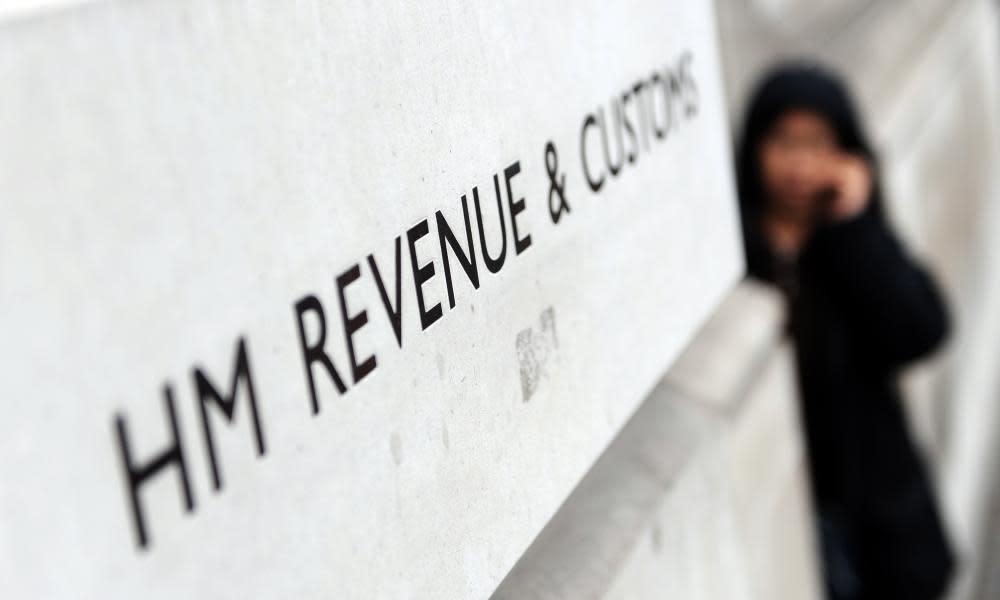IFS: UK's richest people exploiting loophole to cut tax rate

More than 9,000 of the richest people in the UK collected more than £1m each in capital gains last year, exploiting a loophole that could result in them paying tax at a rate as low as 10%.
Economists at the Institute for Fiscal Studies (IFS) thinktank said wealthy professionals often chose to form companies and partnerships to be eligible for lower capital gains tax (CGT) rates rather than collect salaries that would be subject to the top rate of income tax.
HMRC data shows 9,000 people paid just £5.1bn in tax on £33.7bn of capital gains income in the latest financial year available. That works out at an average tax rate of 14.8%, lower than than the basic rate income tax of 20% that people pay on salaries of between £12,501 and £50,000.
Andy Summers, a tax expert and assistant professor at the London School of Economics, said that despite recent changes to tax rules, private equity fund managers were still able to receive most of their remuneration in the form of “carried interest”, taxed as capital gains instead of income. Other highly paid professionals can convert their income into gains by retaining profits inside their companies as they approach retirement.
“Capital gains are highly concentrated at the very top of the income distribution; the vast majority of reported gains go to people who received more in one year than a worker on the median wage would earn in their entire lifetime,” he said at an IFS conference in London on Tuesday titled “Inequality and the very rich: what do we need to know?”
Business owners can qualify for entrepreneurs’ relief, under which they can pay just 10% CGT when they sell all or part of a company. The standard CGT rate is 20%. This compares with the 40% income tax rate on salaries of between £50,001 and £150,000.
People recording gains of more than £1m each accounted for 62% of all capital gains receipts in the 2017-18 financial year, the latest available data set.
Mike Brewer, a professor of economics at the University of Essex and expert on inequality, who chaired the debate, said: “Capital gains are not counted as income when the Office of National Statistics, Department for Work and Pensions and Institute for Fiscal Studies estimate income inequality in the UK. This means that our impression of inequality or top income shares is overlooking 9,000 people all with at least £1m of capital gains, with an average capital gain of £3.7m, and a total capital gain of £34bn.”
@Summers_AD made a splash by revealing that, in 2017-18, £34 billion of capital gains was declared by just 9,000 people, each declaring >£1m.
Did he spend months poring over tax data to get this ? No - it's out of HMRC's statistical release! .https://t.co/dqHutiiQqm (2/n)— Mike Brewer (@MikeBrewerEssex) November 5, 2019
Robert Palmer, the executive director of Tax Justice UK, a campaign group lobbying for a fairer tax system, said: “Politicians need to address the low tax lifestyle option open to the wealthy. It can’t be right that a hedge fund manager is able to pay less tax than their cleaner by arranging their tax affairs this way.
“Recent polling we carried out found that the public overwhelmingly agrees income from capital gains should be taxed at least at the same level as income from work, this should be a no brainer for all politicians.”
A Treasury spokesperson said: “We want a tax system where everyone pays their fair share, while also ensuring supporting investment and growth.”
Separately, HM Revenue & Customs announced it was writing to 5,000 people who hold investments in offshore funds to warn that they face 200% tax penalty fines on any gains made if they failed to declare their offshore interests correctly.
“Ensuring the correct UK tax is paid on offshore investment funds can be complex,” a HMRC spokesman said. “This activity is to help people with complex affairs make sure that they have paid the right amount of tax at the right time.”

 Yahoo News
Yahoo News 
